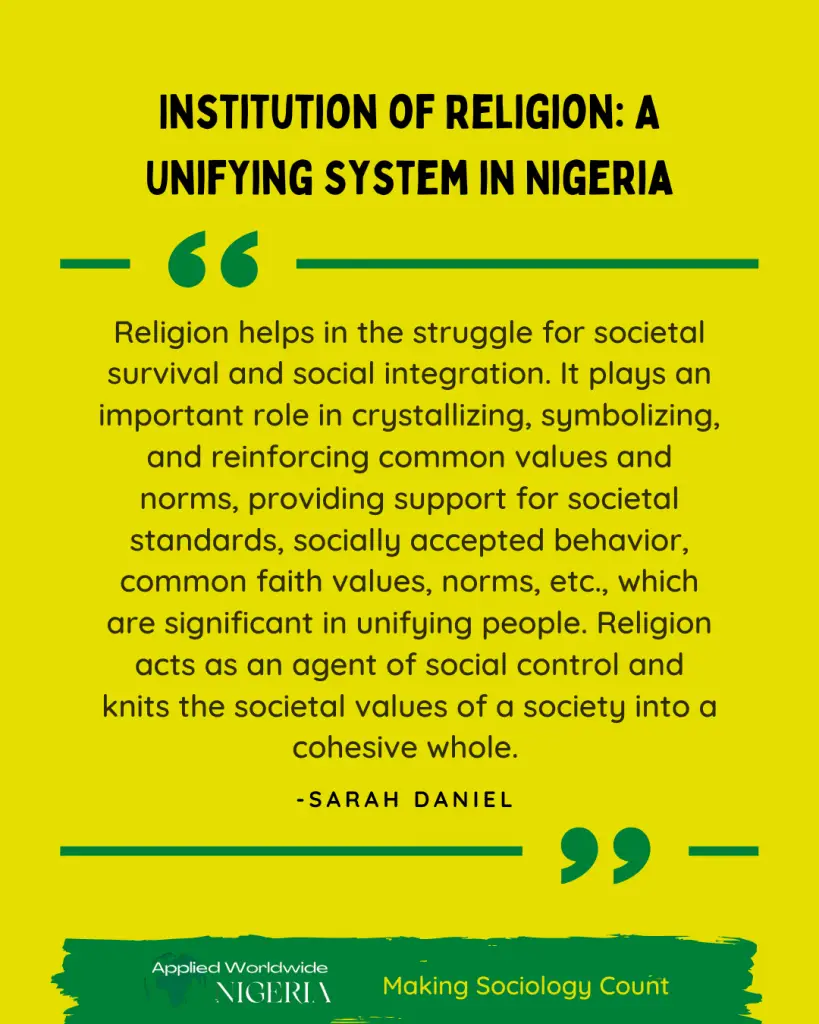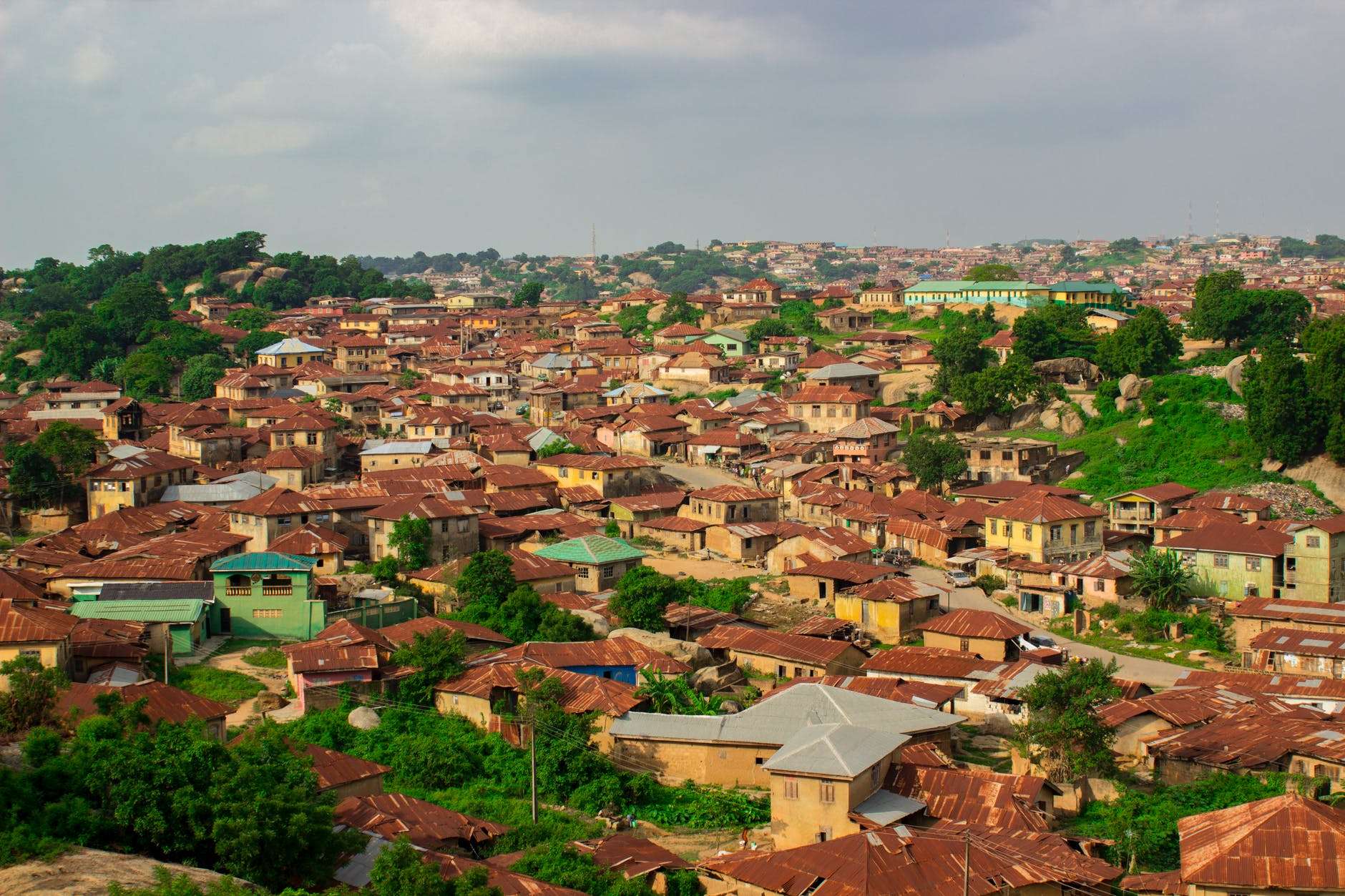
Religion is a unified system of beliefs and practices relative to sacred things, that is to say, things set apart and forbidden—beliefs and practices which unite people into a single moral. Like all other social institutions, the institution of religion arose from the intellectual power of man in response to certain felt needs of men. While most people consider religion as universal and therefore, a significant institution of societies, it is the foundation on which the normative structure of society stands.
Religion dates back to the beginning of the culture itself, a very ancient institution. As such, there is no primitive society without religion. Religion is preeminently social and therefore found in all societies. It is a means of preserving the values of life.
Religion is interwoven with all aspects of human life: with kinship systems, economic and political institutions prior to the advent of what may be called ‘the age of reason.’ It has been the bedrock of the spiritual and moral values of life. It has shaped domestic, economic, and political institutions. Hence, it is obvious that religion performs many functions both for the religious group and the wider society.
Nigeria in her 60 years of nationhood is the most populated black nation in the world. She has to her credit a written constitution being operated for the effective governance of her population comprising people of different religious freedoms and cultural backgrounds. In Nigeria, Christianity, Islam, and Traditional religions are most widely practiced. Muslims account for 50% of the population, Christians 40%, and those holding religious beliefs 10%.
With slightly over 200 million people, the population is comprised of over 370 ethnic groups. The three major groups account for 40% of the population. Ethnic conflicts have been a phenomenon ravaging this country for a long time. It has led to the loss of lives and property too large to keep count of. In a heterogeneous society like ours, the fear of domination by the majority over the minority has been a phobia threatening to tear us apart leading to situations like the threat of secession.
In a nation torn down by ethnic conflicts, tribalism, and domination, religion is the umbrella that unites us. Where culture and languages divide us, religion- our faith is what we have in common. There is more that unites us than actually separates us. But unfortunately, we find ourselves being immersed in our differences and this tends to widen the space between us.
Religion helps in the struggle for societal survival and social integration. It plays an important role in crystallizing, symbolizing, and reinforcing common values and norms, providing support for societal standards, socially accepted behavior, common faith values, norms, etc., which are significant in unifying people. Religion acts as an agent of social control and knits the societal values of a society into a cohesive whole.
Naturally, religion is a source of security and well-being for adherents. In Nigeria, with the high respect accorded to religion and the exalted place it occupies, the scheme of things, it is the case that it should and must be a tool, an instrument, and a yardstick for addressing threats to national security and all forms of insecure. This corroborates the fact that religion is both pragmatic and existential. In its pragmatic-existential nature, it seeks practical solutions to people’s existential human problems. It has the disposition to address human national security challenges and offer meaningful solutions.
Our unity is not achieved despite our diversity; our diversity strengthens our unity, much as a compound substance of chemicals forms a stronger substance. Achieving and maintaining unity amidst diversity is a delicate, undertaking task and particularly in the realm of religious beliefs. Let’s come off the bias today.




